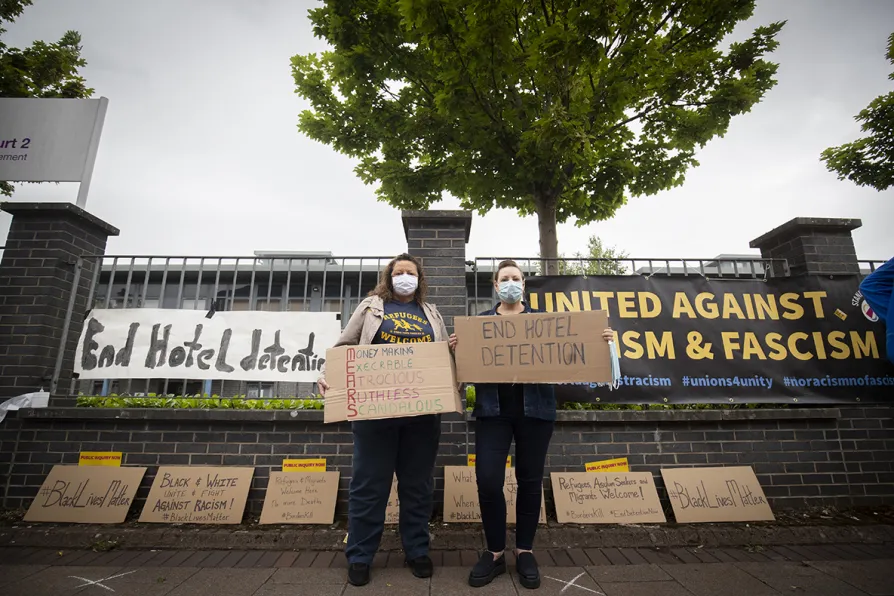Detainee support groups: Statistics show that in ‘overwhelming majority’ of cases, detention serves ‘no purpose’

 Activists from Stand Up to Racism hold a demonstration to demand change and the end of hotel detention of refugees
Activists from Stand Up to Racism hold a demonstration to demand change and the end of hotel detention of refugees
MORE than three-quarters of people detained during the pandemic were released back into the community with their detention having served no purpose, campaigners have claimed.
Of the 12,967 people who entered the detention estate in the year up to March 2021, just 24 per cent were deported from Britain with the rest eventually released, according to analysis of official figures.
This is a significant drop from the previous year when the removal rate of detainees stood at 35 per cent.
Similar stories

Government accused of scapegoating ethnic minorities after Home Office reveals plan to publish the nationalities of foreign criminals

Under Trump, the hunt for migrants has reopened — resulting in a mass deportation of innocent Venezuelans to a notorious mega-prison in El Salvador. MARC VANDEPITTE tells the story of 24-year-old barber Francisco Casique whose tattoos and country of origin were enough to make him disappear behind bars without trial

MPs condemn Home Office after it wasted £15.4m on derelict prison to house asylum seekers











